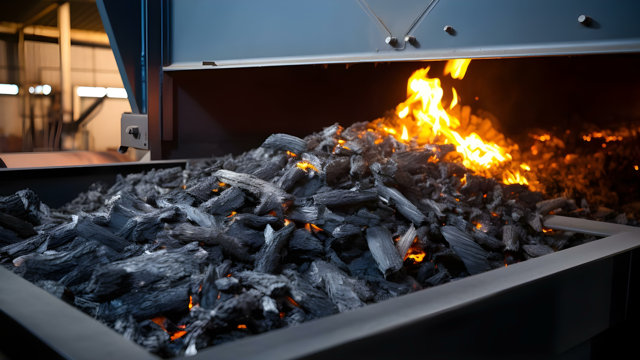
HEMPALTA, an agricultural technology company focused on harnessing the potential of hemp, is launching a hemp-based biochar product.
“We continue to advance our business by adding new revenue-generating streams related to industrial hemp. We’ve added a global hemp carbon credit platform that enables us to seek out new markets worldwide and participate in the growing carbon credit marketplace. Now we’re diversifying our products to include biochar,” said Darren Bondar, HEMPALTA’s President and CEO.
HEMPALTA operates a hemp processing plant at its production facility in Calgary. Earlier this year the company went public on the TSX Venture Exchange with HEMP as its ticker symbol. It released financial results to the market this week, highlighted by a 32% increase in quarterly revenues year over year.
HEMPALTA develops new hemp-based products to complement its current ones retailing in the market to create additional revenue streams. Those current products include animal bedding, pet litter, garden mulch, and hurd for hempcrete, which is a sustainable building material.
Bondar and his team have also been busy building a HEMPALTA-owned platform that can assist hemp farmers in monetizing carbon removal credits on the global voluntary carbon market. This explains its recent purchase of a majority position in Hemp Carbon Standard, a leading carbon platform for industrial hemp farming.
To this point in 2024, Hemp Carbon Standard has achieved a 337% increase in total acres under management over 2023, the year the platform was established. For this year HCS has worked with farmers and signed up 13,556 acres in Canada, the U.S., the United Kingdom, Ukraine, Spain, Portugal, and Australia, which is expected to result in the removal of over 50,000 tonnes of CO2 from the atmosphere and creating an equal amount of high-integrity, nature-based carbon removal credits.
Bondar notes that “hemp has the highest estimated carbon sequestration potential of any crop, but in the past hemp producers couldn’t accurately measure or verify those estimates.”
The new biochar product factors into this focus. Made by recycling industrial hemp biomass, biochar is produced through a process called pyrolysis, which heats organic material at high temperatures at extremely low oxygen levels. The method traps carbon and creates a product that can be spread on agricultural fields, boosting soil health and supporting plant growth while sequestering carbon and generating carbon credits.
Biochar presents a promising opportunity for HEMPALTA and farmers, allowing hemp and other plant waste to be converted into a valuable commodity that can generate revenue through carbon credits, which for high-quality biochar typically sell for between US$100 and US$200 per tonne of CO2 sequestered.
With power demand driven by data centres and AI, large corporate buyers are increasingly interested in carbon credits. Recently, several major social networking companies banded together to commit to spending US$1 billion on carbon removal services by 2030.
link
